This is what it's like working on a psychiatric ward during a pandemic
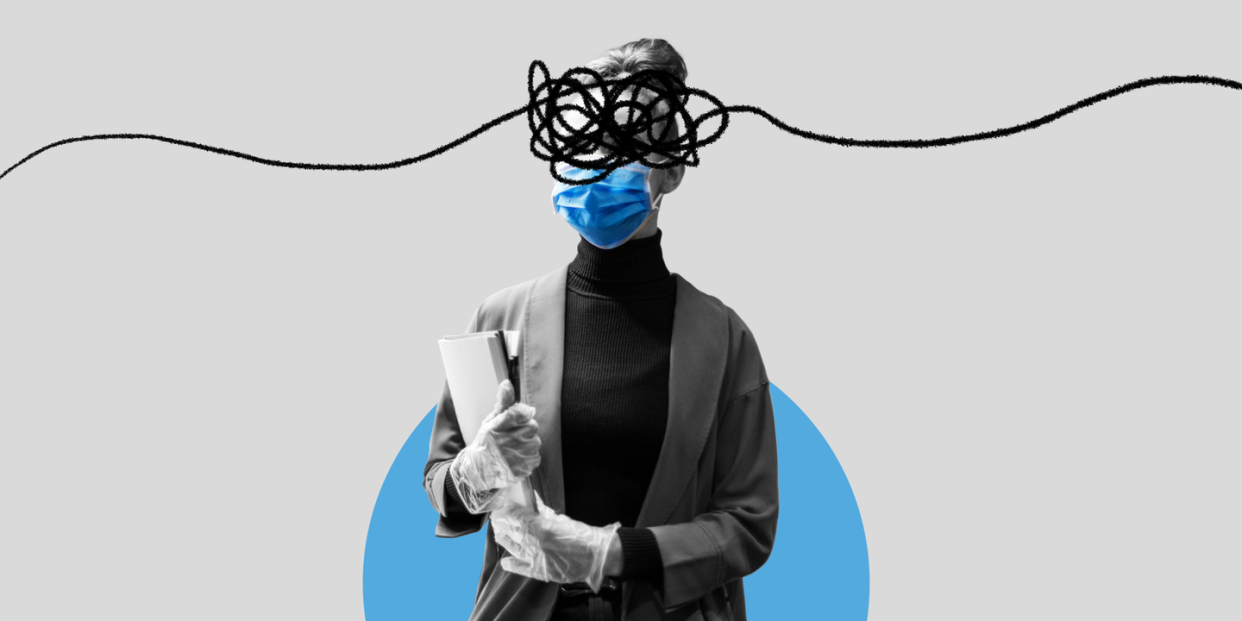
Warning: some may find this a distressing read.
I pushed the button, setting off the Ward Two alarm, but I knew that nobody would be coming to help. The radio crackled in my hand – “Rapid response required on Ward One, back up required on Ward One” – and I knew I couldn’t run to help either. My stomach growled from skipping lunch and my neck ached from where an acutely unwell woman had stood on a chair and strangled me from behind earlier that day. A surgical mask itched my nose.
It was the bank holiday weekend in May and due to coronavirus, we were down seven staff members at the London psychiatric hospital where I work in as an Associate Mental Health Worker (similar to an Assistant Psychologist). Exhausted, I’d worked through my break… again. That day was the closest I’ve come to breaking point throughout the pandemic, throughout the year the world was tipped upside-down.
THE DAY EVERYTHING CHANGED
I can pinpoint the exact moment that COVID changed everything, the day a magnifying glass was held over all the cracks in the NHS: the first weekend of lockdown, back in March last year. When it comes to mental health, our goal is always to be focussed on recovery, to treat people as quickly as possible and get them back to their best. I help to diagnose service users (we don’t call them patients), can do some forms of therapy with them, such as low-level CBT, and help to create treatment plans. My job is also to keep them safe and ensure they don't hurt themselves (or others).
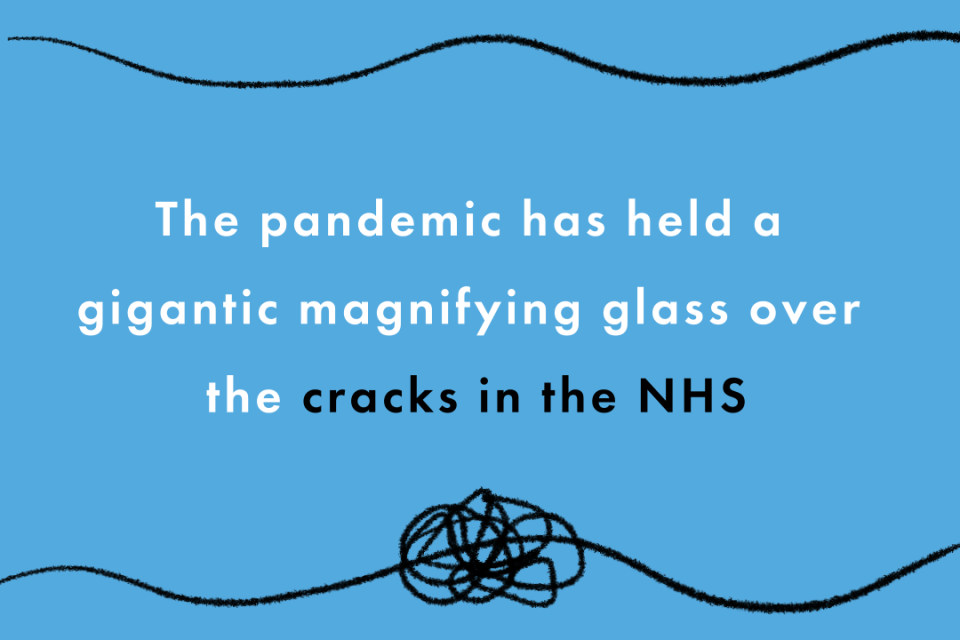
Before the pandemic we’d also have occupational therapists come in and facilitate activity workshops, such as cookery or art. Painting a clay pot may sound wishy-washy, but it really helps to keep service users in a routine and to rediscover the joy that accompanies achieving something. We could spend proper time getting to know them, listening to them, bonding. Visitors were allowed in every day, something that’s vital for recovery, as having meaningful relationships and purpose in our lives is crucial to good mental wellbeing.
I’d estimate that 80% of our staff called in sick that first lockdown weekend. That was when the air shifted and became thinner for the rest of us. It became more about getting people in and out again, managing their behaviour and putting out fires (e.g. restraining an agitated service user, something that's a lot harder to do with fewer colleagues on-hand to assist). It was harder to effectively carry out one-to-one supervisions on those who are suicidal, too.
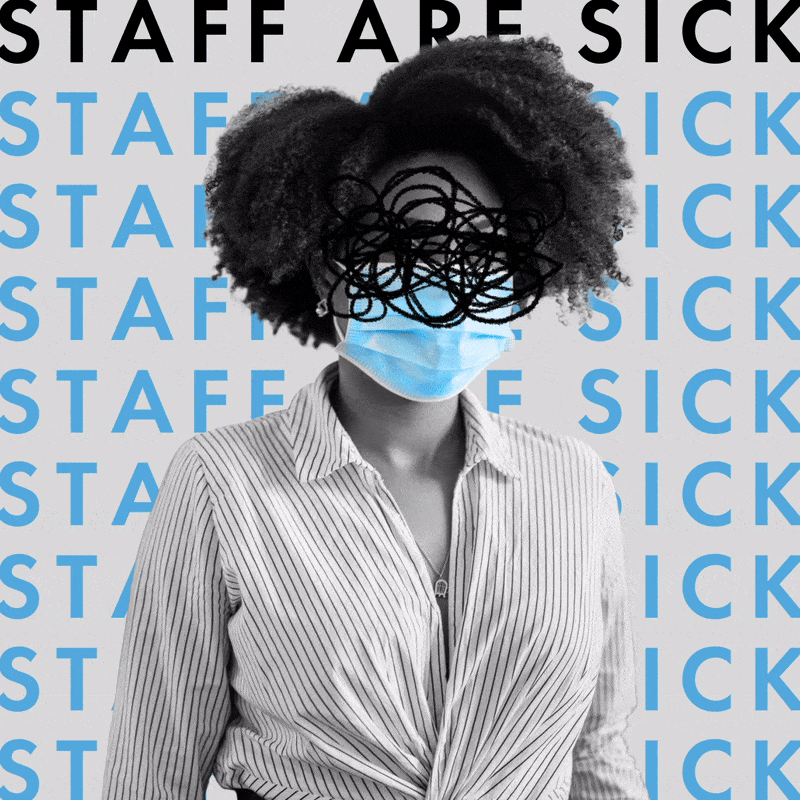
The trust I work for has a high percentage of Black, Asian and Minority Ethnic staff members. Some stayed home as they were genuinely displaying symptoms of coronavirus, but others were just too afraid to come to work. And I don’t blame them for that. In the early days of the pandemic our ward wasn’t even provided with PPE (as is often the way, the mental health sector was forgotten about by the government – it’s also desperately underfunded).
Then the bed shortages began. The number of people being admitted with first-time psychotic depression or severe psychosis (where people experience hallucinations or feel as though they’re being conspired against) increased. At times we’ve had to buy beds from the private sector as we simply don’t have capacity for those in need, or people are sent hundreds of miles away from where they live.
People like the 40-something former high-flying head of HR, with no history of any mental illnesses in her family, who’d lost her job at the start of the pandemic. She lived alone and couldn’t get the support she needed from friends or family, or a GP appointment, and spiralled. It took us four months to treat her. Other people have been admitted because the mental health workers who’d typically visit them at home are no longer allowed to do so, meaning their condition has escalated without support.
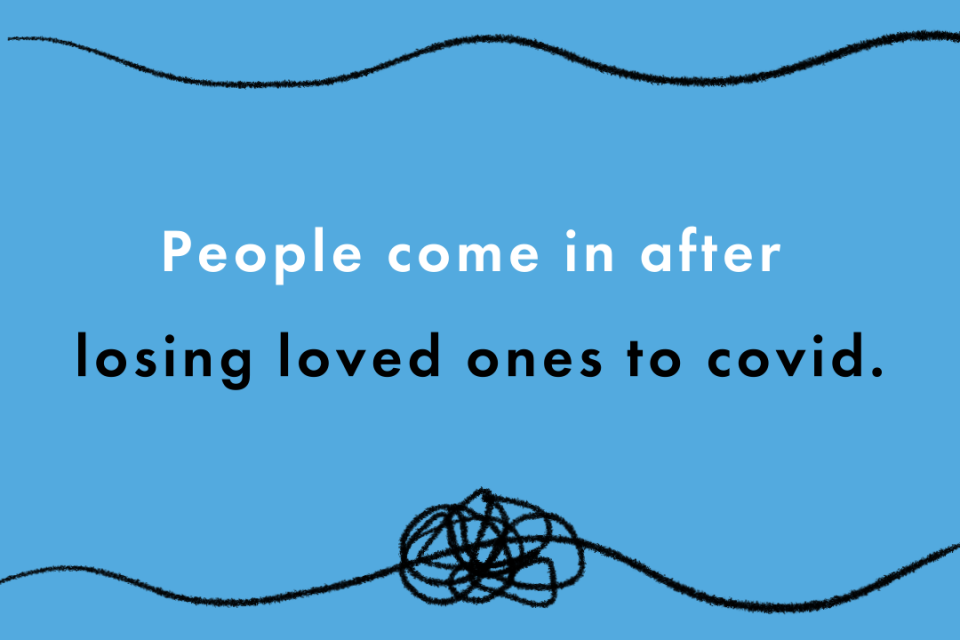
We recently had a young man admitted after he went through a break-up and tried to decapitate himself with a sword, in part due to feeling so isolated and alone. Obviously, this isn’t solely down to the pandemic, but those factors are exacerbated. We’ve also seen people come in after they’ve lost a loved one to COVID and are struggling to cope with the pressure of caring for the rest of their family. Then there are those who have a long-term condition (such as schizophrenia or bipolar disorder), but who’ve been stable on medication for ten or twenty years, suddenly relapsing.
Often mental illness stems back to things like socioeconomic status, too (it’s no coincidence I work in one of London’s poorest boroughs and we also have one of the highest rates of mental health service users). COVID has seen changes to people’s home lives (domestic abuse has soared in the last year – last week we kept a woman in as it was safer for her than returning home) and in-person support groups have been cancelled. The link between poverty and poor mental health is absolutely undeniable. Something I wish was taken more seriously.
KEEP CALM AND CARRY ON
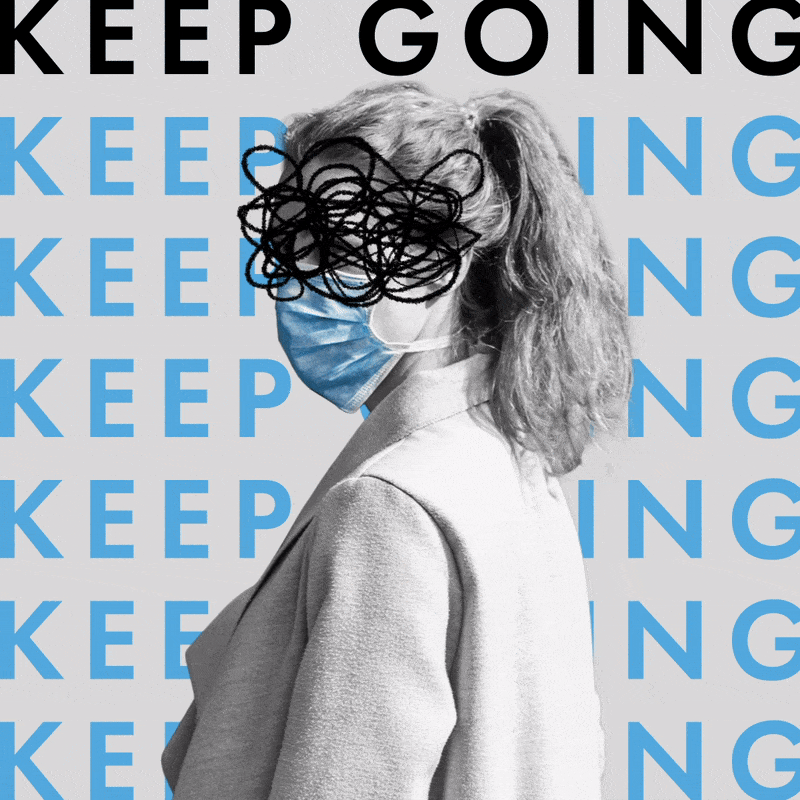
When somebody is really poorly, with something like psychosis or extreme paranoia, telling them that there’s an invisible, potentially deadly virus doing the rounds and that they need to social distance is impossible. We’ve had countless service users in who’ve tested positive for COVID, and although we put them in an isolated room once we get the results back, sometimes it’s too late. They’ve already stayed on the ward, sat closely with staff. Staff who’ve then died. Our trust has lost eleven members of staff in total. We hold a minute’s silence for each of them, but then it’s back to work. Back to putting out those fires.
I know many of my colleagues are struggling with their own mental health right now, with anxiety and depression being the biggest culprits. For me personally, it may sound odd, but I’m largely desensitised and know I have to just have to keep rolling with it. I’m more likely to get worked up over a Hinge match not responding to me. I also feel as though if I’m anxious and stressed it’ll leak out into my working environment, making service users more anxious and stressed.
Thankfully, we’ve been provided with proper PPE now – you can’t move for masks and hand sanitiser – but it took a few months. In the beginning we’d have to wear the same face mask all day (when they’re ineffective after four hours). I’ve tested positive for antibodies, so I know I’ve already had the virus at some point, but luckily was asymptomatic.
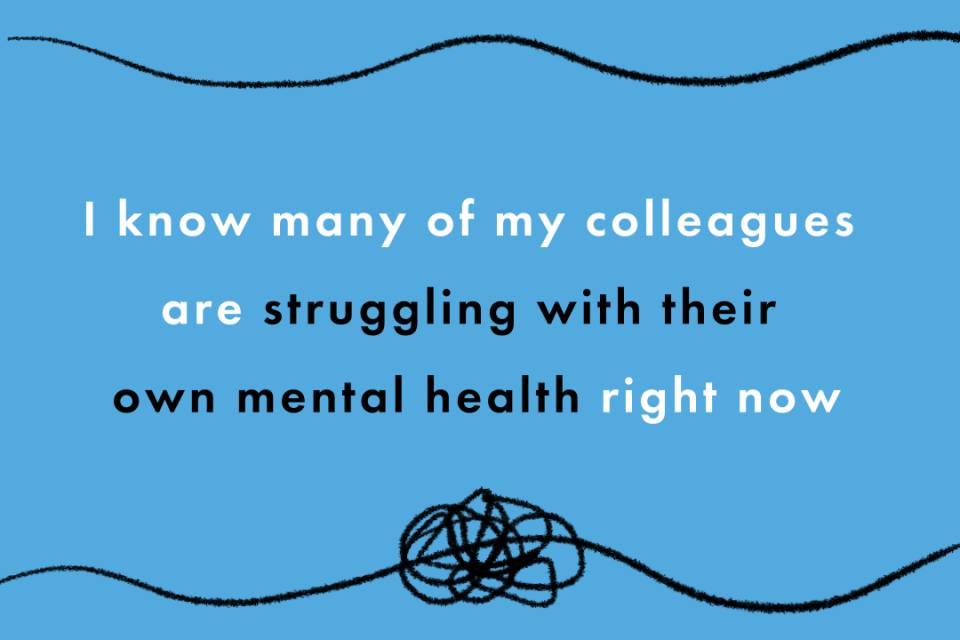
Working through the pandemic has become my new normal. Doing 75 hours a week is my new normal. Getting a daily COVID email bulletin about staff deaths and bed shortages is my new normal. But I've had the first dose of the vaccine now and I hope that as that continues to roll out, things will get easier.
We’re all doing the absolute best we can and I'm proud to be one of the staff – from doctors and nurses, to healthcare assistants and mental health workers – who help to keep the wheels turning and help to save lives. I’ll keep putting one foot in front of the other and doing my job to make sure I do.
*Names and details have been changed to protect privacy.
Follow Jennifer on Instagram and Twitter
If you're struggling with your mental health during this pandemic, take a look at these practical things to remind yourself of, or focus on the good news of the moment. For support and information, call mental health charity Mind on 0300 123 3393, or visit their website.
You Might Also Like

